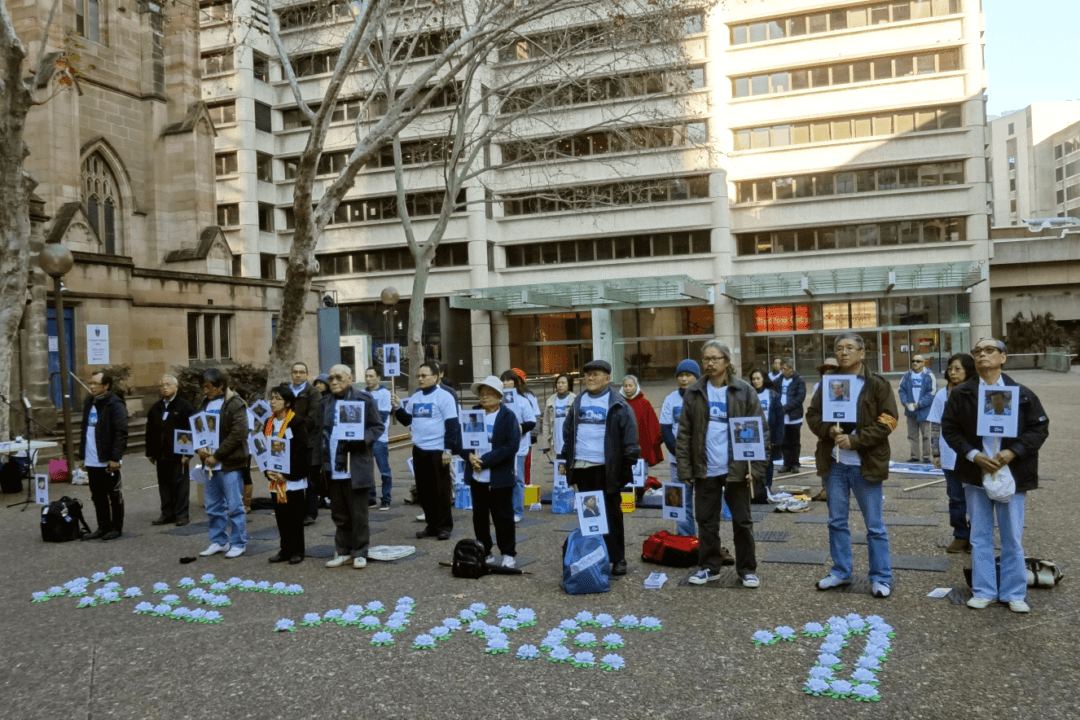Sydney’s Town Hall on July 25, witnessed a 12-hour hunger strike to call for the release of prisoners of conscience in Vietnam.
Around 80 people sat quietly in neat rows throughout the day. Without food, they held photos of and thought about the prisoners of conscience currently detained in their home country.
The event, hosted by the Human Rights Relief Foundation (HRRF), formed part of grassroots efforts to support the global “We Are One: Human Rights 2015” campaign.
The campaign brings attention to Vietnam’s human rights situation and appeals to the international community, including human rights organisations and governments worldwide, to urge the Vietnamese regime to release all its prisoners of conscience.
“Since March 2015, more than 20 civil society groups have promoted [this campaign] to call for freedom, democracy and human rights,” said Chinh Dang, Chair of HRRF.
“On paper, we have around 140 [prisoners of conscience] arrested, but it’s hard to know,” he said, citing heavy state censorship as a barrier to obtaining the true figure.
According to Human Rights Watch Annual Report 2015, Vietnam’s human rights situation remained critical in 2014, with multiple violations concerning the misuse of the criminal justice system; persecution of writers and rights activists; lack of freedom of assembly and association; lack of religious freedom; and brutal abuses of prisoners of conscience.
A speaker at the assembly, former Vietnamese Colonel Vo Dai Ton, was himself captured and imprisoned for more than 10 years after attempting to form a movement to resist the Vietnamese regime in 1982. He was held in solitary confinement and tortured a total of 96 times.
“I thank Australia for accepting us over here to start a new life – in freedom, peace and human rights,” he said.
“All its citizens have been considered by the [Vietnamese] Communist regime as their slaves, their animals—not human beings,” he added.
Parramatta City Councillor and speaker at the assembly, John Hugh, said that the international community has a duty to help.
“Just like any outsider can interfere with family violence, human rights abuse is not any country’s internal affair,” he said.





